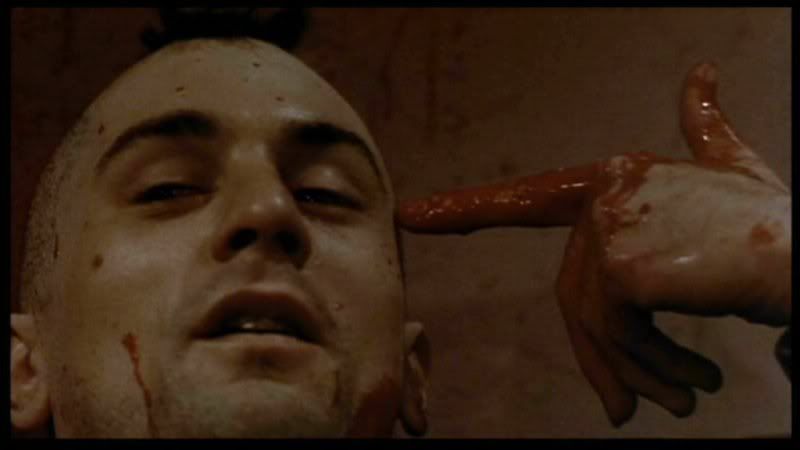
War films are a dime a dozen, so much so that even individual wars are now their own genre of film. There is a distinction between World War II films, Vietnam Films, the wars of old, and even fictional conflict. As a history major I am required to write a long essay for my degree and give a presentation, and mine will involve Vietnam films – I might dedicate a whole entry to that later. I am a big fan of the war genre, and could probably turn this entry into a top ten list if I really wanted to. My favorites are the ones with the best photography of the wars – All Quiet on the Western Front, Paths of Glory, and The Thin Red Line. These films instill the fear and despair in the audience that is felt by the soldiers during battle. As a student of history, I am also a big fan of war films that recount stories, such as Joyeaux Noel, Downfall, and Gallipoli. Although dramatized, they offer a bit of insight into the events in a way that differs from a primary source. Thirdly, I love war films that are set in real wars, but are complete works of fiction designed to tell a good story, such as Inglourious Basterds or Dr. Strangelove. However, there is something about war that almost all films lack – the aftermath.

All men, in some way, return home from war changed. Some take to the drink, some grow disaffected from their families, others have to learn to deal with new disabilities. The Best Years of Our Lives is a film that deals with all of these issues. Set and released one year after World War II, this Best Picture winning William Wyler film tells the story of three men who come home from war as men who appear the same but are fundamentally different. There’s the sailor, who comes home with hooks for hands, trying to adjust to a family staring; there is the Sergeant, who grows distant to his job and family, takes up drinking as his form of comfort; and there is the captain, who can’t find work, watches as his once vibrant marriage turn loveless, and is haunted by war fatigue. Each of them has to readjust to their old lives, attempting to help each other out on the way. After wading through dead bodies, some close friends, some their own kills, how could they simply go back to normal? For 1946, the film was a zeitgeist for the greatest generation, but the film’s theme is timeless for any war.

Thirty years later, former soldiers were still getting over another war, this time Vietnam, and another film was made. Taxi Driver, a film I’ve written about several times in this blog, deals with Post Traumatic Stress Disorder that several veterans deal with. Travis Bickle, the films anti-hero, is lonely and depressed. We see his body damaged slightly by the war, and his mind completely shattered. We know nothing of his service, except that he was a marine, and that he was wounded. Yet we get the sense that he must have been through hell to come out as confused and misanthropic as he does. Taxi Driver deals with the issue more subtly than The Best Years of Our Lives, but there is no doubting that wars aftermath is the real theme for both films.
It is an issue that is a lot harder for filmmakers to deal with than war itself. While war is hell, it is also been relevant for every generation, and historically has always captured our collective imaginations. Everyone has a friend or a relative who has served, and most of the time feels proud for his or her service. The transition home is, in many ways, just as hard on the soldiers, but much less glorious. However, the few films that have been made on the subject - such as the two I have discussed - are in every way important to the war genre as any other war film.

Thirty years later, former soldiers were still getting over another war, this time Vietnam, and another film was made. Taxi Driver, a film I’ve written about several times in this blog, deals with Post Traumatic Stress Disorder that several veterans deal with. Travis Bickle, the films anti-hero, is lonely and depressed. We see his body damaged slightly by the war, and his mind completely shattered. We know nothing of his service, except that he was a marine, and that he was wounded. Yet we get the sense that he must have been through hell to come out as confused and misanthropic as he does. Taxi Driver deals with the issue more subtly than The Best Years of Our Lives, but there is no doubting that wars aftermath is the real theme for both films.
It is an issue that is a lot harder for filmmakers to deal with than war itself. While war is hell, it is also been relevant for every generation, and historically has always captured our collective imaginations. Everyone has a friend or a relative who has served, and most of the time feels proud for his or her service. The transition home is, in many ways, just as hard on the soldiers, but much less glorious. However, the few films that have been made on the subject - such as the two I have discussed - are in every way important to the war genre as any other war film.
Comments
Post a Comment